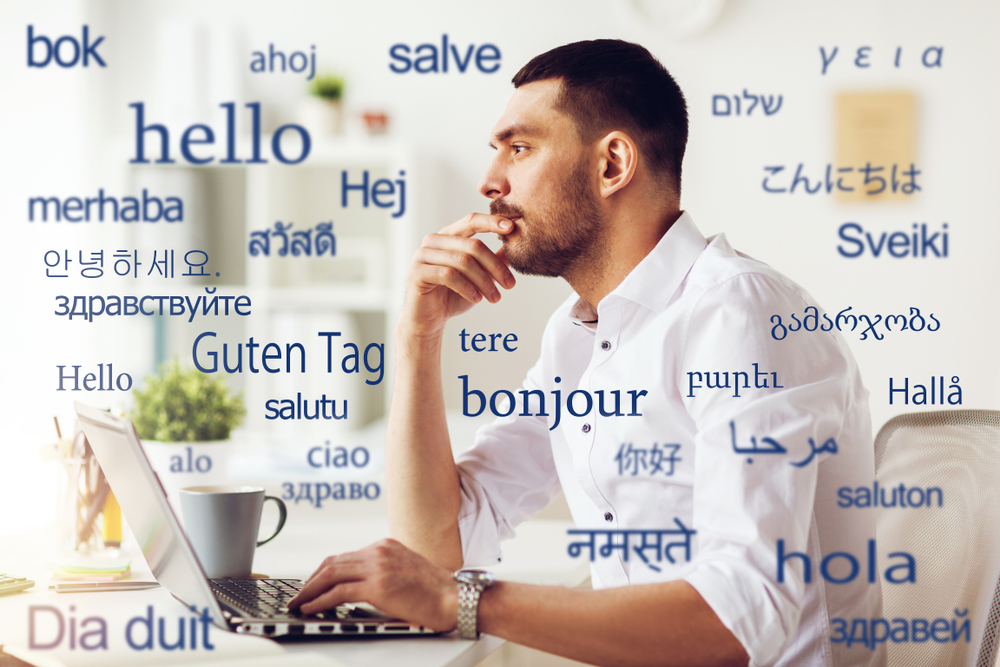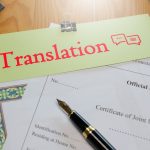
The Role of Professional Translation in the Travel & Tourism Industry
The travel and tourism industry thrives on cross-border experiences, international relationships, and seamless cultural exchanges. In a world where global travel is more accessible than ever, communicating effectively with international visitors is not a luxury—it’s a necessity. Translation services for tourism play a pivotal role in making destinations accessible, attractive, and welcoming to a diverse global audience. From enhancing the visitor experience to supporting business growth in the hospitality sector, professional translation helps bridge the linguistic gap between travelers and tourism providers.
Why Translation Services Are Essential for the Tourism Industry
Enhancing the Travel Experience Through Multilingual Support
When tourists feel understood and supported in their native language, their travel experience becomes more enjoyable, stress-free, and memorable. Multilingual signage, translated brochures, and local guides in multiple languages can mean the difference between frustration and a flawless vacation. From airport terminals and railway stations to museums and guided tours, linguistic clarity enhances traveler confidence and autonomy.
Professional translation goes beyond word-for-word conversion. It ensures the intended meaning is preserved, the context is culturally appropriate, and the tone is aligned with expectations. This is especially important in emotionally charged or high-stress scenarios, such as navigating transportation hubs, seeking medical care abroad, or understanding emergency protocols.
By providing clear, accurate, and culturally adapted content, tourism operators can increase visitor satisfaction, earn repeat business, and build positive reputations across international markets.
The Role of Professional Translation in Tourism Marketing
Tourism marketing hinges on compelling storytelling, immersive experiences, and strong emotional appeal. When marketing materials are poorly translated or not localized, they can alienate potential travelers instead of inspiring them. Professional translation ensures that slogans, promotional materials, website content, and advertising campaigns retain their persuasive power across languages.
Localization—a step beyond translation—involves adapting content to the local customs, idioms, humor, and social norms of the target audience. For instance, a travel campaign that resonates in the U.S. might need to be reimagined for audiences in Japan or Brazil, where cultural references, imagery, or emotional triggers may differ dramatically.
Investing in translation services for tourism marketing helps destination management organizations (DMOs), tour operators, and hospitality brands craft targeted campaigns that generate higher engagement and increased bookings.
Common Travel & Hospitality Materials That Require Translation
Tourism businesses deal with a wide range of content types that must be professionally translated to serve international visitors effectively. These materials include:
- Travel brochures and guides
- Hotel websites and booking platforms
- Restaurant menus
- Tour descriptions and itineraries
- Transportation schedules and maps
- Safety instructions and emergency procedures
- Mobile apps and kiosks
- Cultural and historical site signage
- Customer service chatbots and call scripts
- Visa and immigration information
Accurate and timely translation of these materials improves customer experience, helps organizations comply with local regulations, and maintains operational consistency.
How Translation Helps Businesses Thrive in Global Tourism
Attracting International Tourists with Localized Content
Today’s travelers increasingly research destinations, accommodations, and attractions online before making decisions. If tourism businesses want to capture attention and convert interest into bookings, their digital presence must speak the language of their audience.
By offering localized websites, apps, and booking engines, tourism businesses can appeal to non-English-speaking markets such as Chinese, Spanish, French, or Arabic travelers. This tailored approach fosters trust, improves SEO visibility in regional search engines, and increases conversion rates.
For example, a resort that offers its website and reservation system in Mandarin is more likely to win over Chinese tourists planning an overseas vacation than a competitor that only offers English content.
Ensuring Accurate Communication in Travel Bookings and Services
Mistranslations in travel bookings or service descriptions can lead to unmet expectations, negative reviews, or even legal liabilities. A guest who believes breakfast is included may feel misled if that’s not the case. A traveler who misinterprets the cancellation policy could escalate a simple misunderstanding into a formal complaint.
Professional translators ensure that critical transactional information—pricing, terms of service, refund policies, and more—is conveyed accurately. This level of precision protects both the business and the consumer and fosters long-term loyalty.
Additionally, multilingual customer service support, powered by well-translated scripts and FAQs, empowers teams to resolve issues swiftly and professionally.
How Poor Translations Can Hurt Tourism Businesses
The impact of subpar translations can be severe. In the travel and tourism industry, where perceptions and experiences are everything, even small errors can lead to damaging outcomes:
- Loss of credibility: Amateur translations or machine-generated content can appear unprofessional or confusing, eroding trust.
- Offensive content: Literal translations that ignore cultural nuance may unintentionally offend or misrepresent the destination.
- Missed revenue: Poor translations may confuse users, cause cart abandonment on booking platforms, or result in negative word-of-mouth.
- Legal consequences: Inaccurate translations of contracts, disclaimers, or regulatory content may expose businesses to compliance violations.
In short, the cost of bad translation can be much higher than the investment in doing it right the first time.
Choosing the Right Translation Services for Tourism
Key Qualities to Look for in a Tourism Translation Provider
Not all translation providers are created equal. When choosing a partner for translation services for tourism, businesses should evaluate:
- Industry expertise: Do they understand the specific needs of the tourism and hospitality sector?
- Linguistic accuracy: Are they using certified or native-speaking translators with proven track records?
- Cultural fluency: Can they adapt content for cultural appropriateness beyond simple translation?
- Technical capacity: Can they handle diverse formats like websites, brochures, signage, or app interfaces?
- Workflow and turnaround: Do they offer efficient project management, quality assurance, and timely delivery?
- Multilingual support: Can they support translation in multiple language pairs to scale with your expansion plans?
Partnering with an experienced firm ensures that every touchpoint with your global audience reflects professionalism, care, and clarity.
The Benefits of Using Native Translators for Travel Content
Native translators are not just fluent—they bring a deep, lived understanding of cultural context, idiomatic expression, and audience expectations. This is especially important in the tourism industry, where emotional resonance and local relevance matter.
For example, translating a hiking trail guide or a cultural etiquette handbook for Japanese tourists requires sensitivity to tone, style, and cultural norms. Native translators ensure that the content feels natural and engaging rather than awkward or artificial.
Their insight also helps spot nuances and potential misinterpretations that automated translation tools often miss. As a result, content not only reads better but also performs better in terms of conversions, satisfaction, and reputation.
Cost Considerations for Professional Tourism Translation Services
While professional translation services require investment, the returns often outweigh the costs. When evaluating pricing models, businesses should consider:
- Per-word or per-page pricing: Typical for written content such as brochures or articles.
- Hourly rates: Common for editing, project management, or DTP (desktop publishing).
- Subscription or retainer models: Ideal for large-scale or ongoing translation needs.
- Add-on services: Some providers offer transcreation (creative adaptation), desktop publishing, and localization QA as part of premium packages.
Cost should always be weighed against quality. Low-cost services that cut corners or rely heavily on AI without human review may introduce errors that damage your brand. Investing in a reliable, high-quality translation partner is a strategic move that supports your long-term success in global tourism.
Speak the Language of Global Opportunity
In today’s competitive, multilingual tourism marketplace, professional translation is no longer optional—it is a core driver of success. From enhancing the travel experience to expanding global reach, translation services for tourism empower hospitality businesses to connect with international audiences, deliver exceptional service, and build lasting brand equity.
As the demand for culturally enriched, seamless travel grows, the role of accurate and culturally sensitive translation will only become more critical. Tourism businesses that prioritize professional, high-quality translation are better positioned to attract global travelers, gain their trust, and turn one-time visitors into lifelong advocates.
Partner with Etcetera Language Group, Inc.
If your organization is ready to elevate its international appeal and customer experience, trust a partner that understands the high stakes of global communication. At Etcetera Language Group, Inc., we specialize in precise, culturally aware, and professionally presented translation services for tourism and beyond. Whether you need multilingual brochures, translated booking platforms, or expertly localized digital content, our native-speaking translators and seasoned desktop publishing team deliver results that resonate across cultures.
Contact us today to learn how we can help your tourism business reach the world—one language at a time.
More...
Categorised in: Language Services





